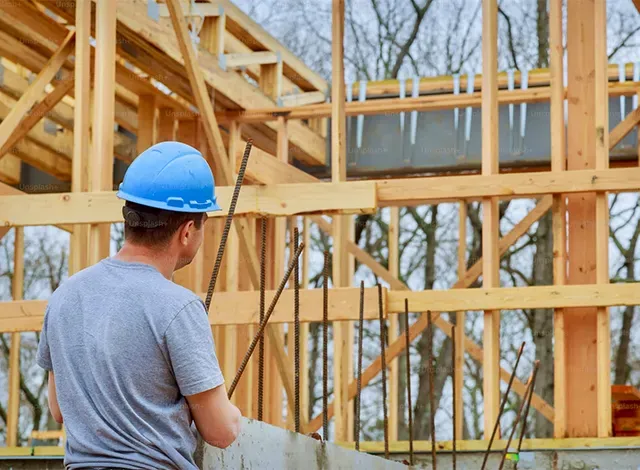LAURIE WEIR
The Town of Smiths Falls is set to introduce a new Building Bylaw that promises to bring much-needed clarity and efficiency to the building permit process for ratepayers and builders alike.
Karl Grenke, the town’s manager of developmental services, delivered a report by Andrew Willows, the chief building official, outlining the proposed bylaw, during a regular committee meeting of council on Sept. 9.
The new bylaw updates the outdated framework last revised in 2005 and aims to better reflect current building practices, technological advancements, and recent changes in provincial regulations.
Willows, appointed by council in 2023, has reviewed the town’s existing building procedures and processes.
After a thorough evaluation of the Ontario Building Code, the Building Code Act, and best operational practices, he is recommending a new Building Bylaw designed to provide building services staff, applicants, and the public with clear and concise guidance.
What’s new for homeowners and builders?
One of the most significant changes is the simplification of the permit process. The proposed bylaw includes clearer definitions of permit classes, updates to existing definitions, and specific guidelines on the required documents for permit applications.
This clarity aims to help builders and homeowners understand exactly what is needed, reducing confusion and the risk of incomplete applications, Willows noted in the report, delivered by Grenke.
The bylaw also incorporates updated standards for digital submissions, including requirements for document formatting, digital signatures, and e-permitting. These changes reflect the shift towards more modern, efficient methods of submitting and processing permits, making the process easier for applicants who prefer electronic submissions.
For those navigating the inspection process, the new bylaw provides clearer information on what is required and how inspections will be conducted. This transparency is intended to help homeowners and builders know what to expect, ensuring smoother interactions with Building Services staff.
Enhanced efficiency and flexibility
The proposed bylaw outlines when a permit application is considered complete or incomplete and provides clear guidelines on permit cancellations if a file remains dormant. This structured approach helps streamline the permit process, minimizing delays and offering a more predictable experience for applicants.
Additionally, while the current fee structure will remain the same for now, it will be managed separately through the town’s Fees & Charges Bylaw. This separation means that fees can be adjusted in the future without the need to amend the Building Bylaw itself, offering flexibility to respond to changing economic conditions or operational costs.
A better experience for all
The proposed Building Bylaw is a step forward in ensuring that Building Services can operate more efficiently and with greater clarity, Grenke noted. For homeowners and builders, this means less red tape, clearer instructions, and a smoother journey from application to construction.
By providing concise and complete guidance, the new bylaw will help staff manage their day-to-day activities more effectively, benefiting all those involved in the building process. As the town prepares to adopt this new bylaw, ratepayers and builders can look forward to a more user-friendly and transparent approach to building permits, inspections, and compliance, marking a positive shift in how building services operates in the municipality.
Coun. Chris McGuire asked how extensive of a change does this represent?
Grenke explained that some provisions are carried forward, but the bylaw was rewritten for clarity. “It was simpler to repeal and replace with a new one,” he said, adding that updates add more detailed guidance and reordering to improve usability.
McGuire suggested consulting with local builders on the bylaw to avoid potential pushback. “Maybe there are some ideas that might be easy to implement,” he said.
Grenke agreed, stating they would conduct outreach with partners before the bylaw goes to council for final approval.
Coun. Jay Brennan supported the proposed bylaw, noting, “I’m happy to support replacing a 20-year-old bylaw.”
Mayor Shawn Pankow asked if the new bylaw would make the process easier for applicants and staff. Grenke responded that the CBO believes the updated bylaw more accurately reflects industry changes and provides clearer guidance for developers and staff. “Clarity is the most important thing,” Grenke said.
Next steps
As part of the next steps, town staff will seek feedback from community builders on the proposed changes, add an appeals process, and include a table of contents in the bylaw. A refreshed proposal incorporating this feedback will be presented at the next council meeting for approval, ensuring the bylaw is as effective and user-friendly as possible.




